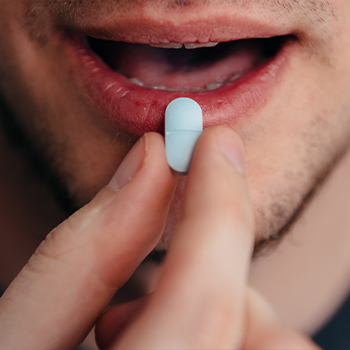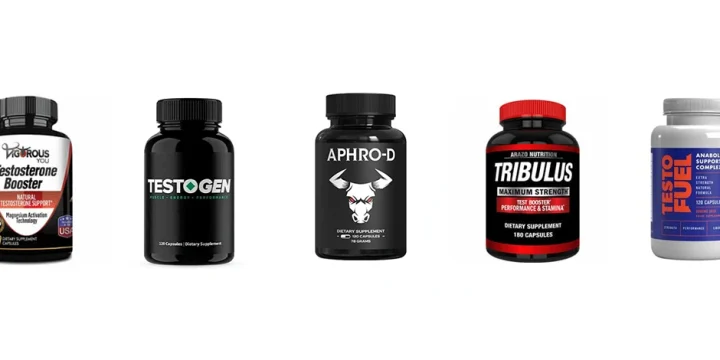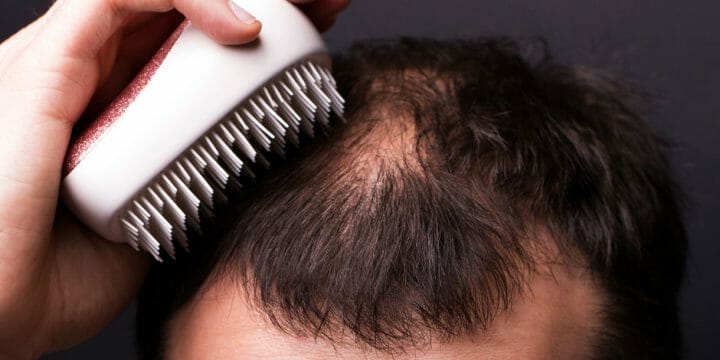Recent medical focus has shifted towards the impact of testosterone deficiency in diabetic patients.
As I will get to shortly, men with low testosterone levels and diabetes could be facing a double attack on their health and wellbeing.
And that’s why I have been telling patients that testosterone is about so much more than erectile dysfunction and building muscle mass. Our research and experience have shown that diabetic men may significantly improve their health with a testosterone boost.
Let me show you what it’s about.
Quick Summary
- Testosterone booster increases testosterone levels, which helps control insulin levels, especially in diabetic people.
- Diabetes can trigger low testosterone because of high blood pressure, reduced sexual function, and loss of muscle mass.
- A study by Dr. Paresh Dandona found that testosterone therapy significantly improved blood glucose levels in men with type 2 diabetes.
- I believe that while testosterone boosters might offer benefits, a holistic approach, including diet and exercise, is essential for managing diabetes effectively.
Can You Take Testosterone Boosters If You’re Diabetic?

As a hormone influencing metabolism, insulin significantly impacts how well you can manage total body fat [1].
Diabetics often face challenges maintaining a healthy body mass index and skeletal muscle strength.
Not surprisingly, free testosterone plays very similar roles, and low testosterone levels combined with insulin resistance can then have an even more drastic effect on the ability to maintain a healthy weight.
One study, in particular, has attracted a lot of attention.
What The Science Says
A study from 2016 by Dr. Paresh Dandona found that men with diabetes and low testosterone could significantly benefit from testosterone boosters or testosterone treatment [2].
“This is the first definitive evidence that testosterone is an insulin sensitizer and hence a metabolic hormone”
- Dr. Paresh Dandona, Professor at University at Buffalo
His study showed a significant improvement in blood glucose levels in men who underwent testosterone therapy while also being treated for type 2 diabetes.
It was the first detailed proof that diminished insulin sensitivity directly influenced testosterone production, meaning that T-levels are tied to metabolic syndrome.
Does Testosterone Influence Type 1 Or Type 2 Diabetics?

The study I mentioned above showed that low testosterone levels and insulin resistance of type 2 diabetics were the demographic where people had the most significant impact.
Let me show you why by quickly looking at type 1 and type 2 diabetes.
Type 1 diabetes, a genetic disorder, manifests early and requires insulin dependency.
Type 2 diabetes is generally related to diet and shows up later in life with diminished insulin sensitivity. Dr. Paresh Dandona was able to show that testosterone was able to influence and mediate insulin-signaling genes [2].
Does Diabetes Cause Low Testosterone?
Yes, diabetes has been proven to cause low testosterone levels [3]. The result of this is loss of muscle mass, reduced sexual function, and even high blood pressure.
When diabetic men get back to normal levels, testosterone reduces adiposity, which essentially is weight loss around the gut [4].
And here’s why it’s so important.
Obese males will struggle with their levels of sex hormone-binding globulin (SHBG) which reduces free testosterone. This causes further fat storage worsening type 2 diabetes, and putting men at higher risk of decreased testosterone and many other health conditions.
It’s a vicious cycle.
How Should Diabetics Maintain Normal Testosterone Levels?

For significantly low T levels, testosterone replacement therapy (TRT) may be necessary.
This is either a testosterone injection or a topical gel that can make a significant difference in low testosterone levels within a few days or weeks.
But in many cases, a blood test might reveal low testosterone but not critically low. In that case, it’s possible to benefit significantly from natural testosterone boosters.
These herbal, vitamin, and mineral supplements are designed to trigger natural responses in your body that produce more testosterone.
They also aim to stop other processes from transforming testosterone into estrogen.
Results typically take about two months to be noticed, and they can help improve sexual function, weight loss, and even bone density.
Are There Health Risks From Testosterone Boosters For Diabetics?
Generally speaking, there shouldn’t be health risks from these T-boosters. They don’t cause sudden testosterone spikes, and the risks from low testosterone levels are generally a lot higher [5].
With boosted T-levels, it may also be possible to make it a lot easier to live a healthy lifestyle that further helps you lose weight.
However, if you have had trouble managing type 2 diabetes, or your health issues include chronic kidney disease, then you have to talk with your doctor first. In those cases, any testosterone treatment has to be carefully managed [6].
Testosterone Therapy Impact in Type 1 and Type 2 Diabetics
For individuals with type 1 diabetes, testosterone therapy has shown promise in enhancing metabolic control and potentially moderating autoimmune responses, which are crucial in this type of diabetes.
On the other hand, with type 2 diabetes is characterized by obesity and insulin resistance, testosterone therapy can be particularly effective in improving insulin sensitivity. This improvement is critical in managing type 2 diabetes, as it directly addresses the core issue of insulin resistance.
FAQs
Can Low Testosterone Cause Insulin Spikes?
No, low testosterone levels won’t cause insulin spikes. It may cause increased fat storage, which then causes increased insulin resistance. Insulin spikes would generally be associated with sudden spikes in blood sugar.
Is Testosterone a Metabolic Hormone?
Yes, testosterone is one of many metabolic hormones. That means that it doesn’t just impact sexual desire but also is an insulin-sensitizing agent that could help men with type 2 diabetes.
References:
- https://spectrum.diabetesjournals.org/content/17/3/183
- https://medicine.buffalo.edu/news_and_events/news.host.html/content/shared/smbs/news/2016/01/testosterone-metabolic-hormone-5346.detail.html
- https://www.webmd.com/men/what-low-testosterone-can-mean-your-health
- https://pubmed.ncbi.nlm.nih.gov/25982085/
- https://www.webmd.com/men/what-low-testosterone-can-mean-your-health
- https://bmcmedicine.biomedcentral.com/articles/10.1186/s12916-020-01594-x
About The Author
You May Also Like






